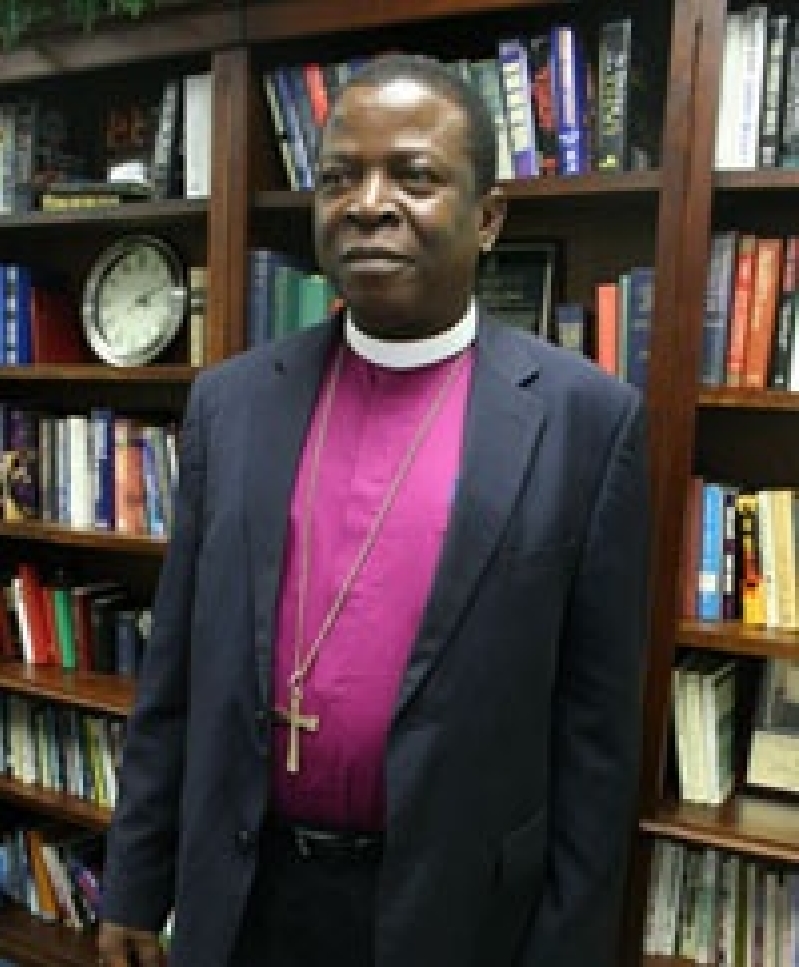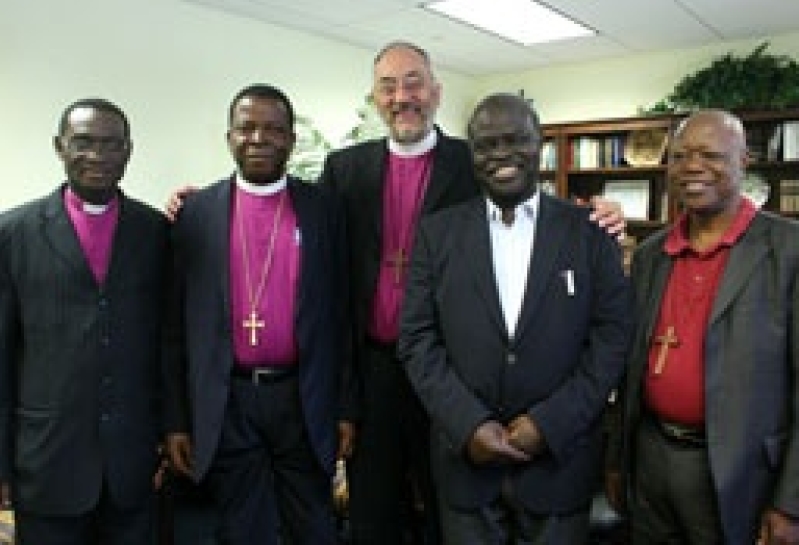

HERNDON, Va. – It's been three years since the Anglican Church of Nigeria "crossed borders" into the United States to establish a new home for conservatives who were unhappy with the liberal direction of the U.S. Episcopal Church.
And if the Nigerians didn't step in, the global Anglican family would have lost a lot of people, said the new primate of the Church of Nigeria.
"We came because we love the Anglican church and we do not want the Anglican church to split," Archbishop Nicholas Okoh told The Christian Post in an interview Tuesday. "That would've been the case if we didn't come in."
Though the Nigerian church, which is the largest regional body in the Anglican Communion with more than 18 million members, came to the U.S. with compassion, it was recently disciplined for violating a moratorium on cross-border intervention.
According to Okoh, the Church of Nigeria received the same sanctions as The Episcopal Church this year, which include removal from the Anglican Communion's ecumenical dialogues and from a body that examines issues of doctrine and authority.
"The command of Scripture is that we should go everywhere and preach and teach. So we came here to help our brothers and sisters in the Lord. But instead of getting commendation, we are getting punishment or sanction," said Okoh, who was elected as primate in September.
Criticizing the move, he commented, "To do so, to ban us ... we believe they were not properly advised. So if you ask me whether there is justification for that, I will say no."
Sanctions were proposed by the Archbishop of Canterbury, Dr. Rowan Williams, earlier this year for provinces that breach the three moratoria that leaders in the 77 million-member global body had agreed to since 2004. The moratoria include cross-border interventions, the ordination of partnered homosexuals and the blessing of same-sex unions.
Last month, the Rev. Canon Kenneth Kearon, secretary general of the Anglican Communion, said sanctions were carried out against The Episcopal Church – the U.S. arm of Anglicanism – following the ordination of a partnered lesbian in Los Angeles. The U.S. body consecrated its first openly gay bishop in 2003. Kearon sent letters to other provinces for possible breach but no announcement was made on whether they were disciplined.
Okoh commented in an address he made earlier that he rejects being placed in the same category with churches that are conducting gay ordination and same-sex marriage, and also opposes the equating of their "evangelical initiative with those who are doing things unbiblical."
Okoh disagrees with the disciplinary actions against the Nigerian church, noting that without their help many faithful Anglicans would have exited the Anglican denomination or abandoned the faith completely. But he said with The Episcopal Church's decision this year to ordain a lesbian, "maybe they asked for it."
If the sanctions prompt the U.S. Episcopalians to rethink their policies, then he said he's OK with it.
Still, he suggested that the sanctions overall do not necessarily solve the problem of theology and of leadership that Anglicans are facing.
Much like the staunchly conservative Archbishop Peter Akinola whom he succeeded, Okoh is vocal in his opposition to homosexual practice.
"Same-sex marriage, pedophilia and all sexual pervasions (sic) should be roundly condemned by all who accept the authority of Scripture over human life," he said in an address last week from the Episcopal House in Abuja, Nigeria.
He made clear on Tuesday that the Church of Nigeria does not have a "personal quarrel" with anybody, namely, The Episcopal Church.
"Let us get it right. We are not fighting with anybody," Okoh stressed. "The issues at stake are issues of personal conviction. If the church here is teaching things we don't accept, we will strongly reject it and say no. But if they teach things that we accept from what we know of biblical interpretations, of plain sense of Scripture, we will accept. We will say we'll work together.
"So it's not a personal issue between us and the people in the West. The disagreement is something that has to do with theology and also aspects of ecclesiology."
Okoh is in the Washington Metropolitan Area this week for the annual council meeting of the Convocation of Anglicans in North America – a missionary initiative of the Church of Nigeria which, along with other similar initiatives, Okoh believes solved the Anglican crisis at the time and prevented a split. CANA consists largely of Anglicans who broke from The Episcopal Church. This is Okoh's first U.S. visit since becoming head of the Church of Nigeria.







